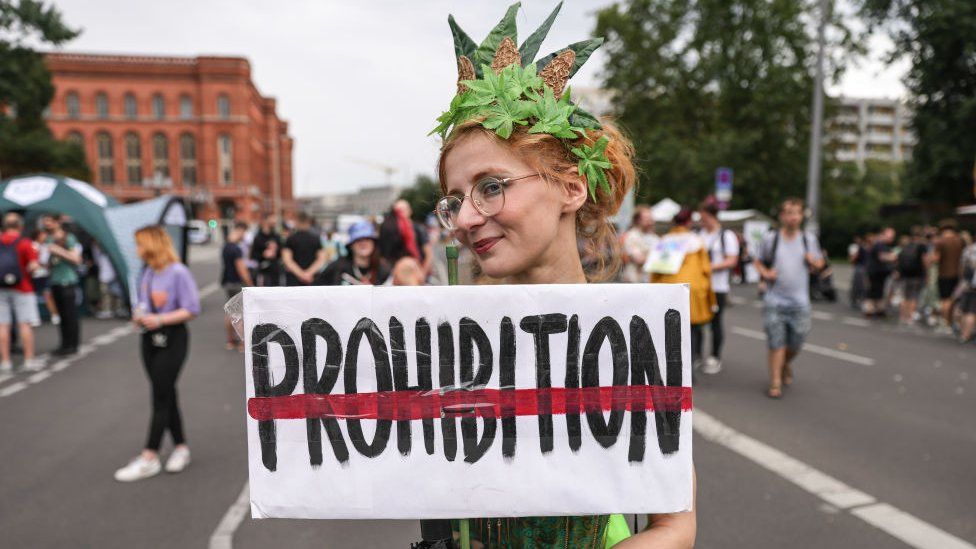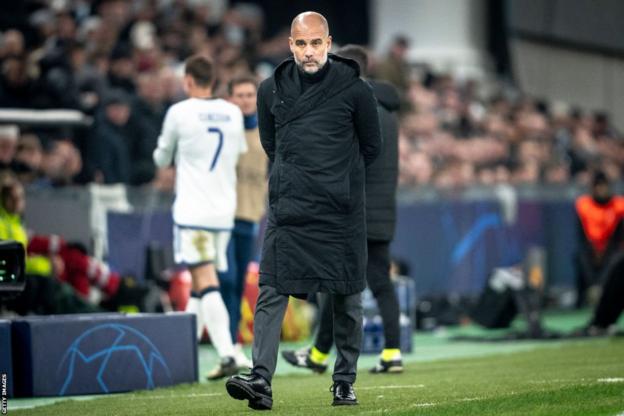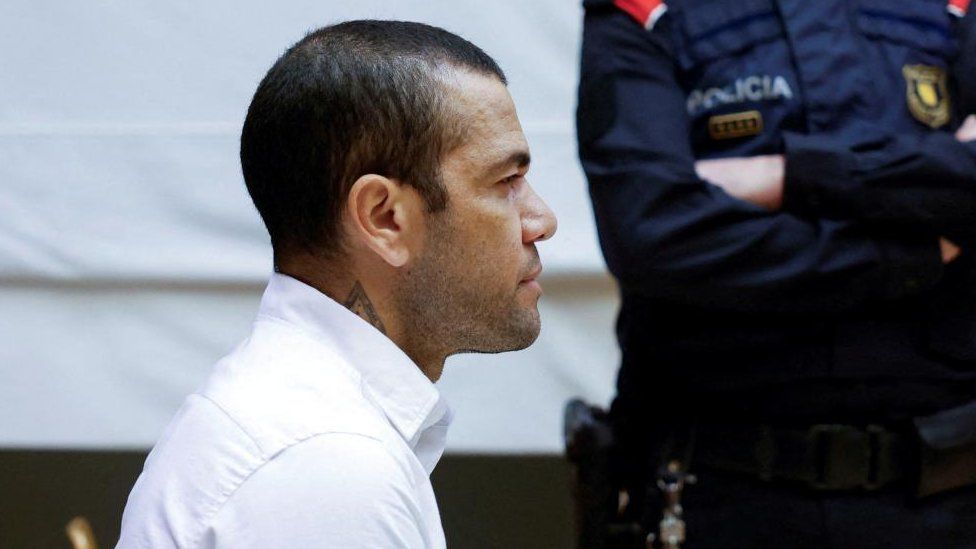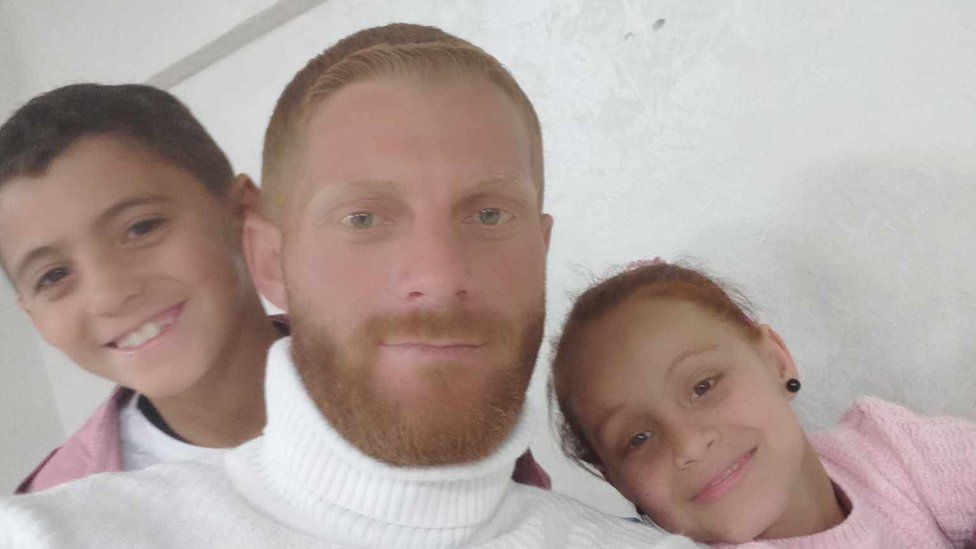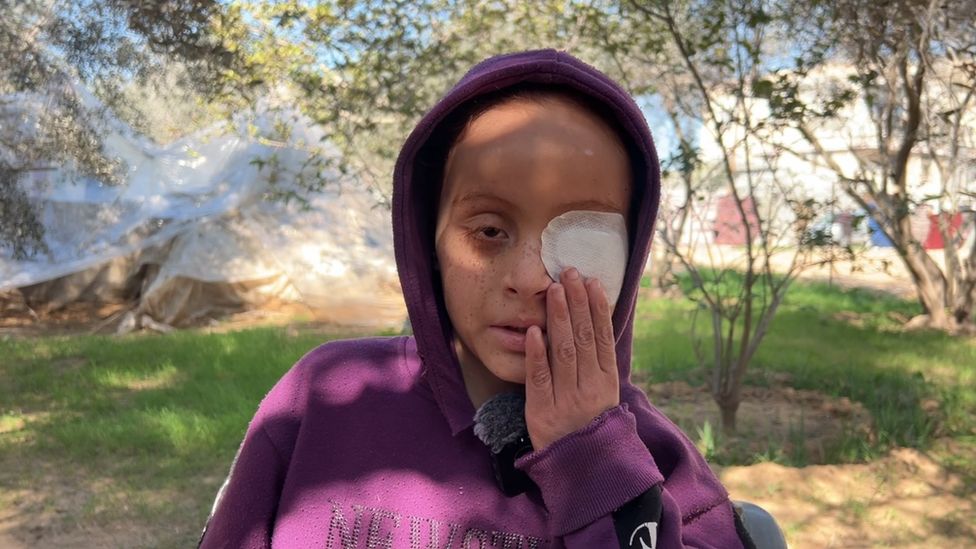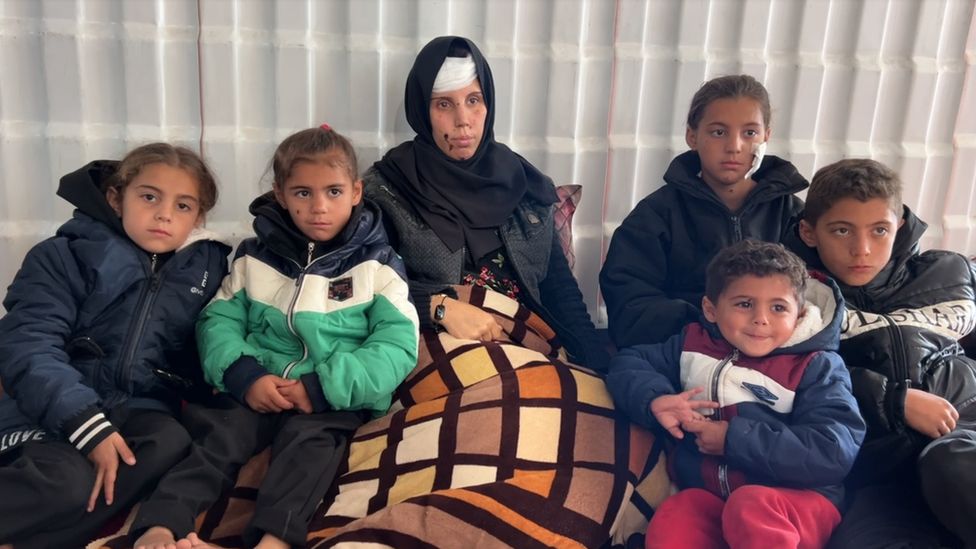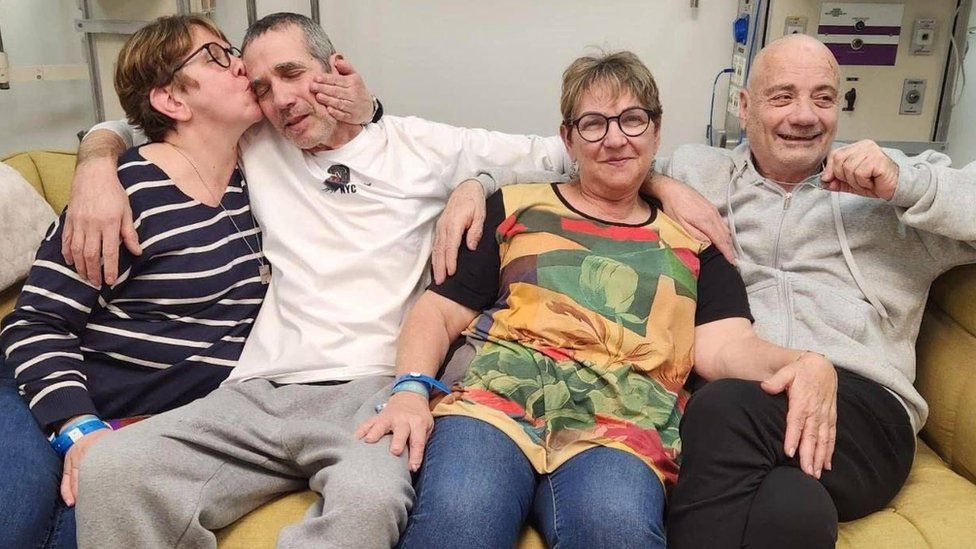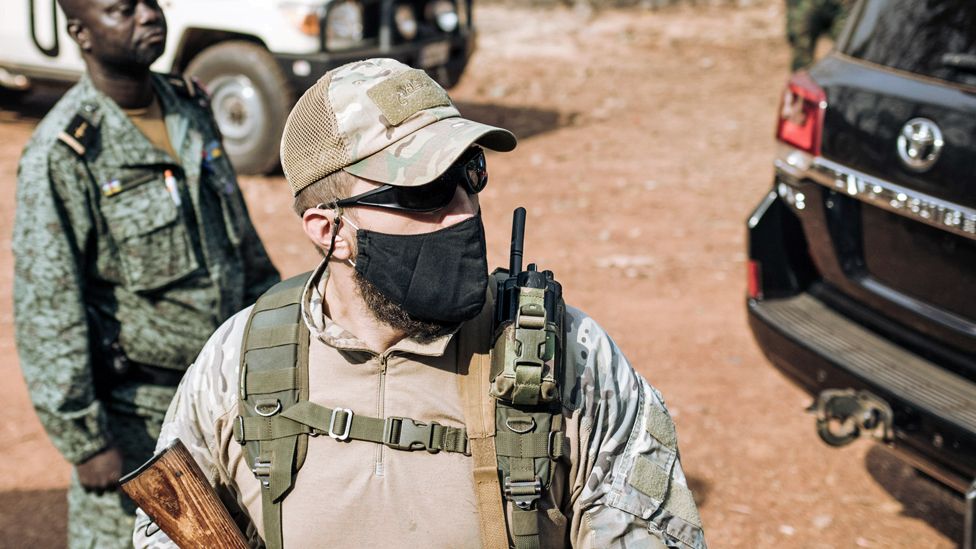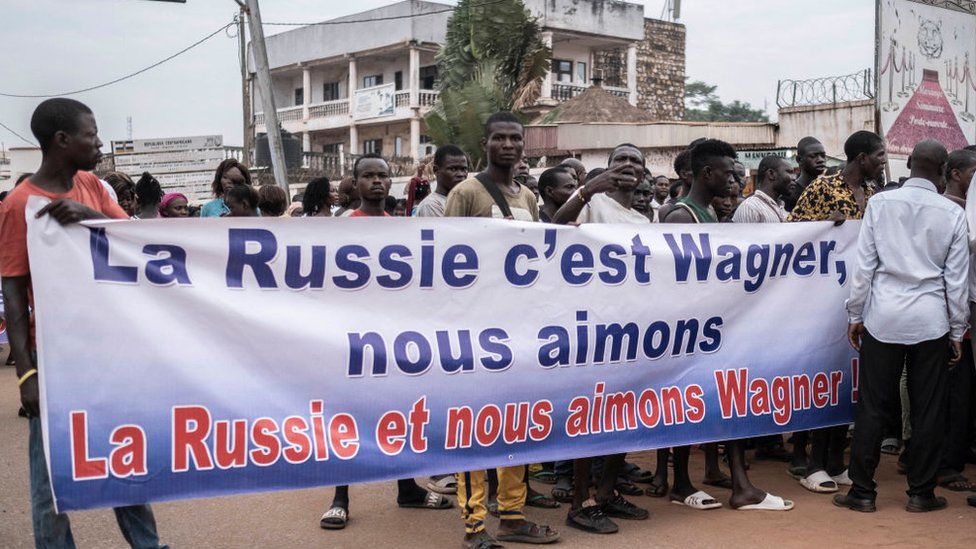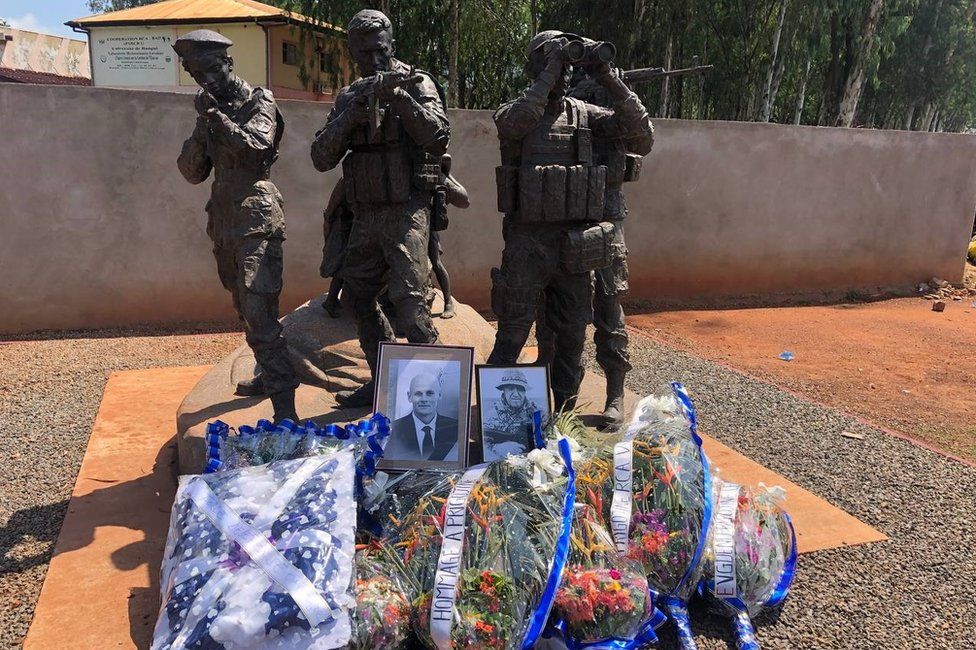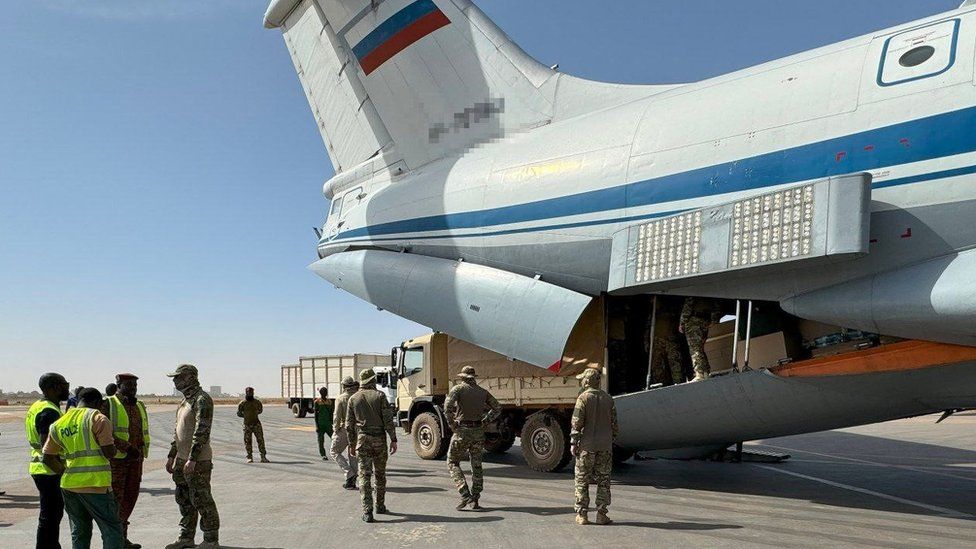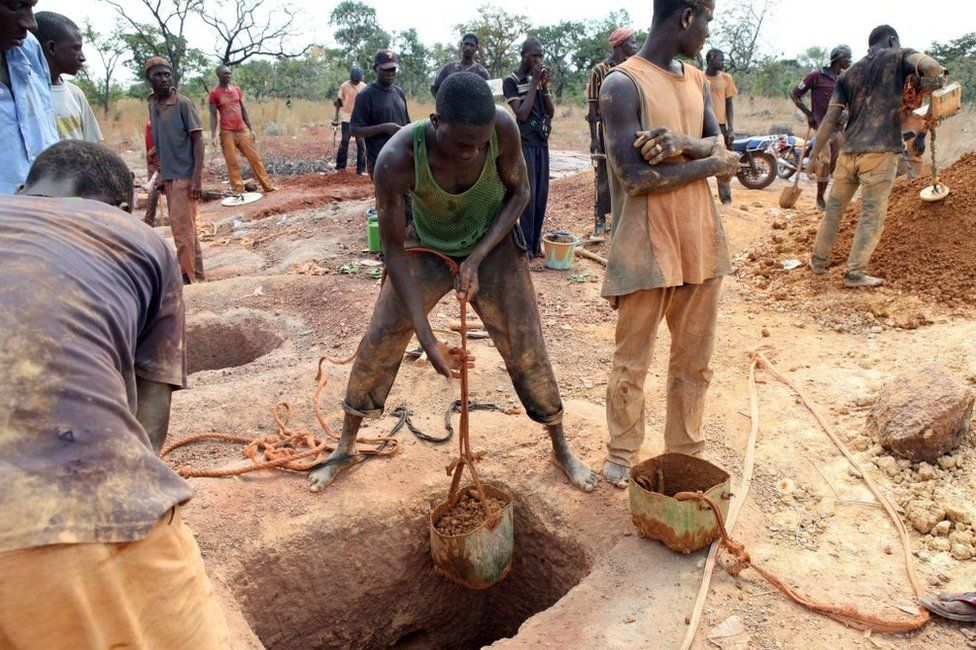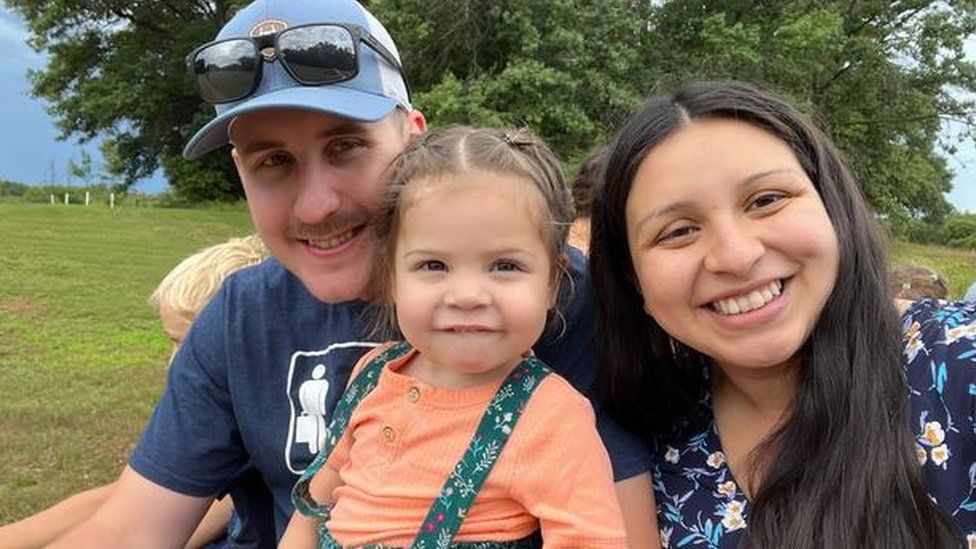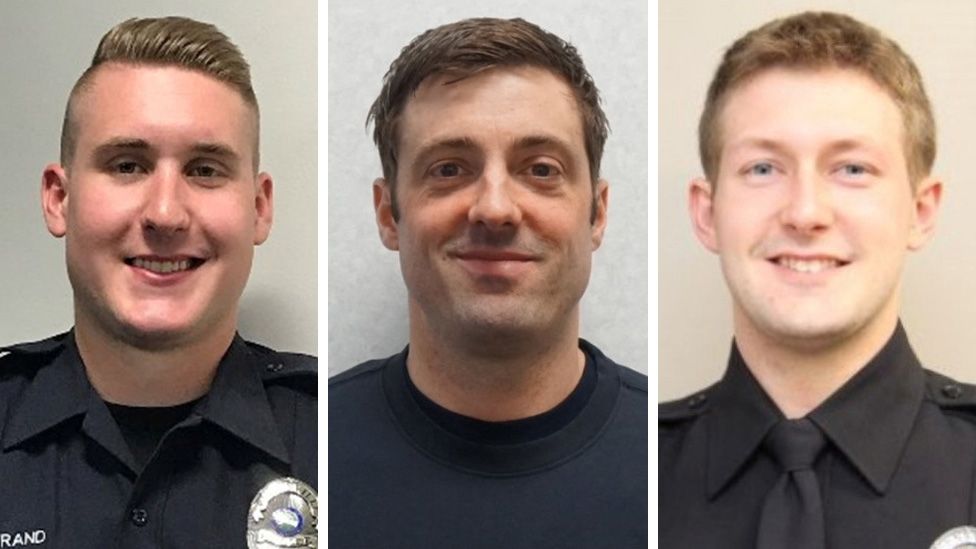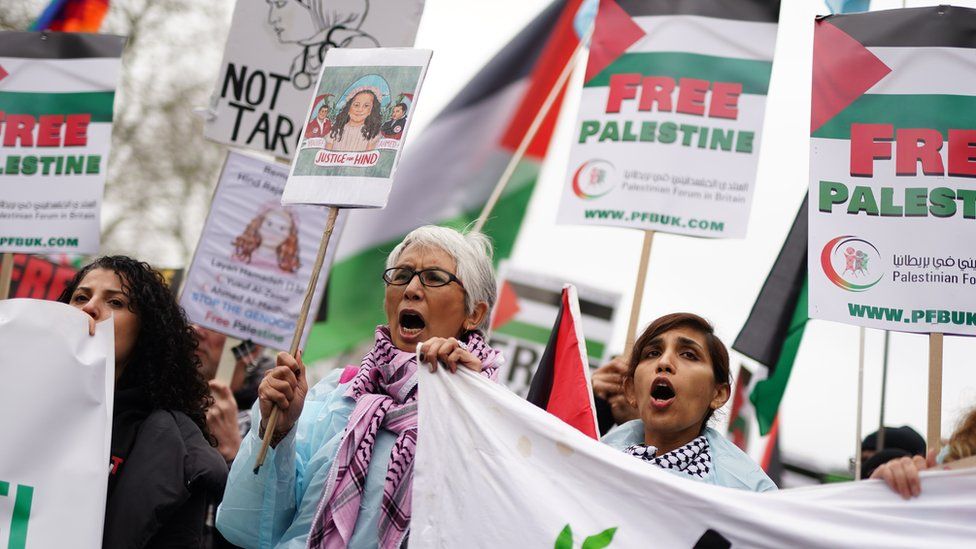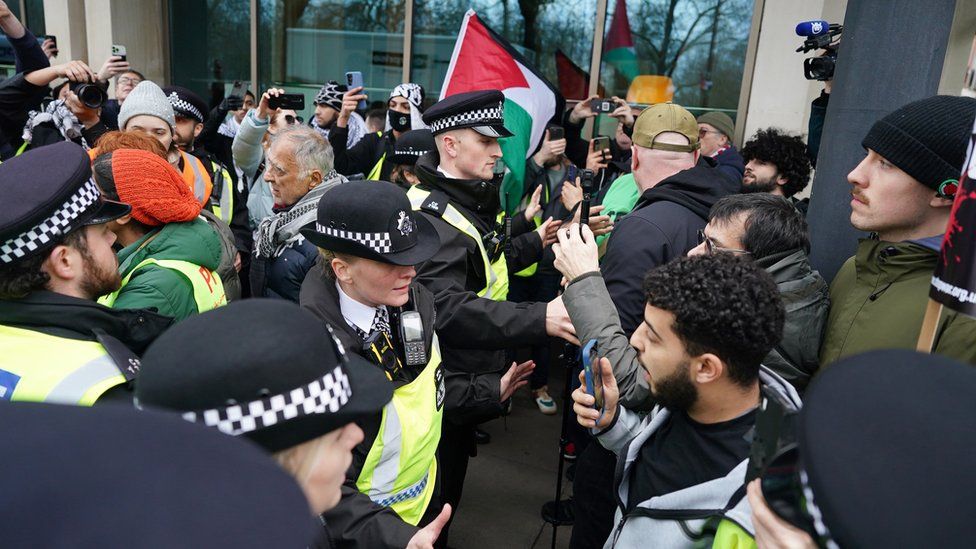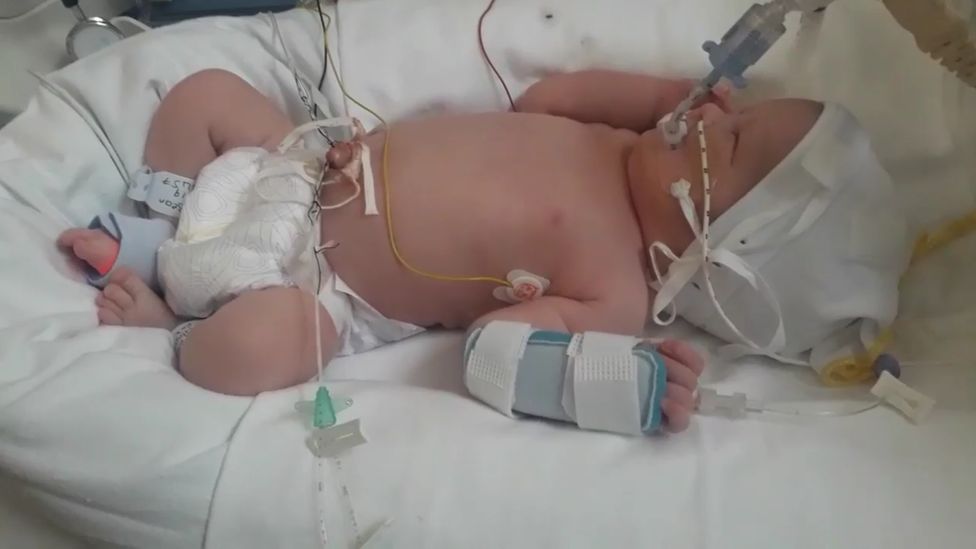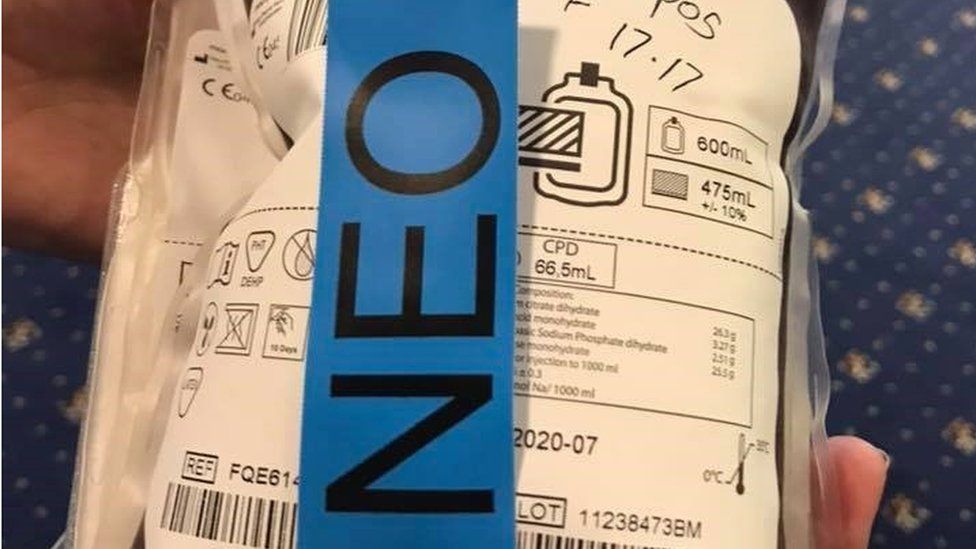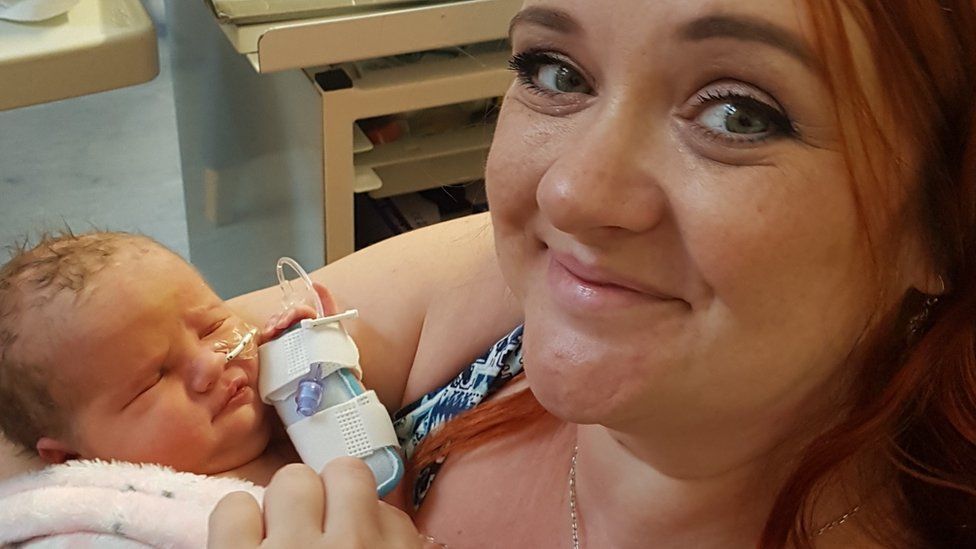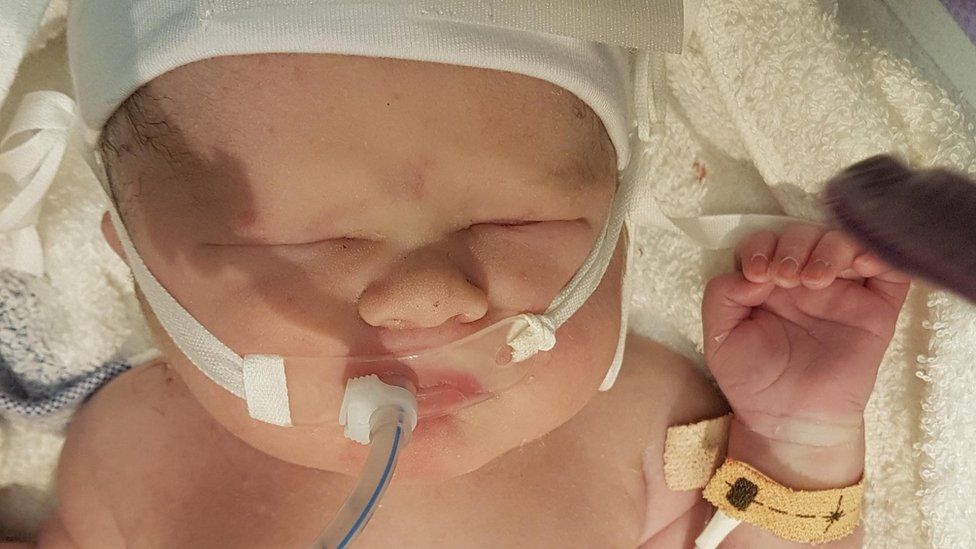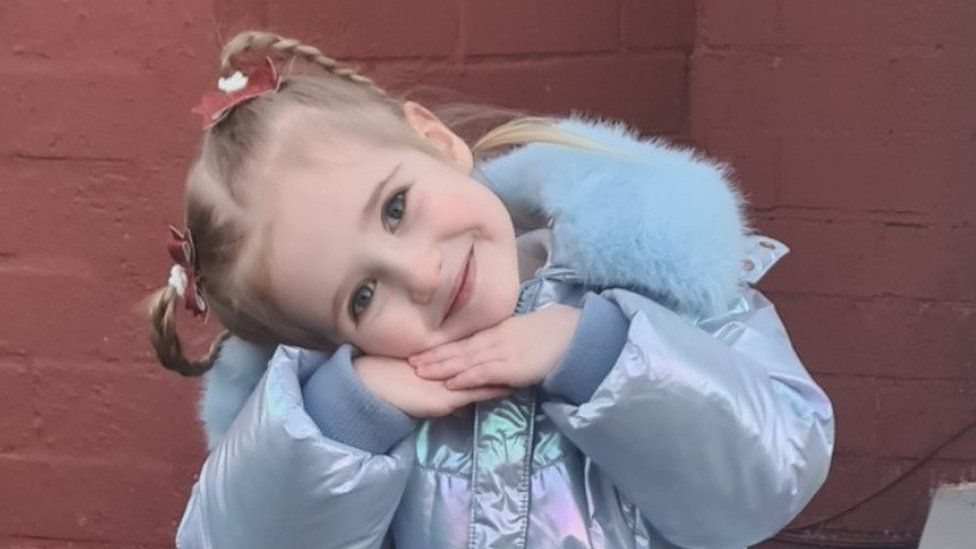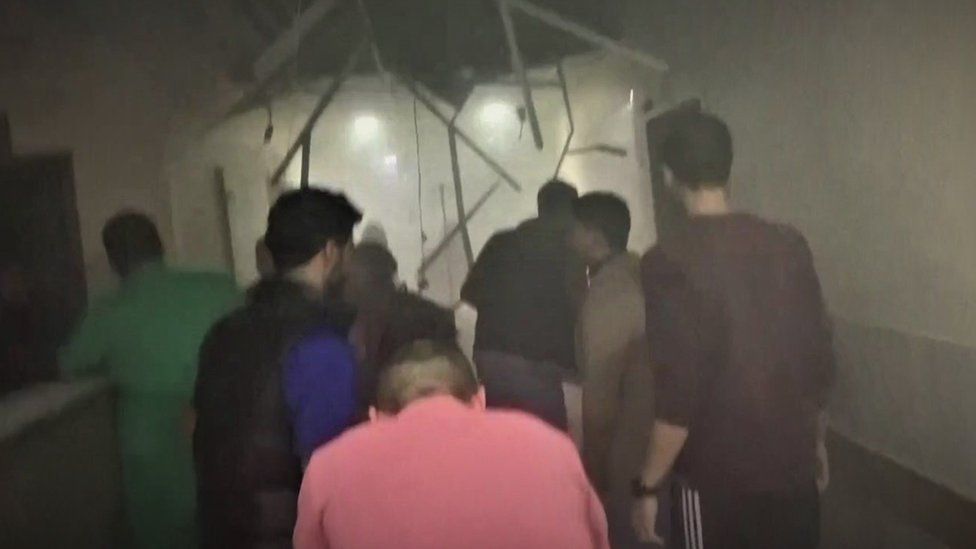
By Mark Savage
BBC Music Correspondent
You probably shouldn’t play Kim Petras’s new EP to your mum.
Titled Slut Pop Miami, it’s an outrageous, sex-positive, club-ready tribute to the joys of carnal pleasure.
Released on Valentines’ Day, it was inspired by “hedonistic trips to Miami” and joins a lineage of explicit, transgressive pop, from Madonna’s Erotica to Cardi B and Megan Thee Stallion’s WAP.
“Stirring up the culture and raising eyebrows has been in the DNA of pop forever,” Petras tells the BBC.
The EP is the German-born star’s third release since last June, following her debut album Feed The Beast and Problématique, a surprise release of an earlier, scrapped project.
This flurry of activity followed her appearance on Sam Smith’s global chart-topper Unholy – which made Petras the first openly transgender artist to have a US number one and the first trans artist to win a major category Grammy.
Her mainstream breakout followed years of hard graft. Petras started uploading cover songs to MySpace in 2007, and later gambled on a move to Los Angeles in the hope of becoming a pop star.
“I played every gay club in America, I danced on every single bar and I built my following from the ground up,” she says.
“I didn’t have my breakthrough until Unholy but, to get to that stage, I had to release multiple songs as an independent artist and prove to record labels that there’s a fanbase out there for me.”
That determination paid off. Now signed to Republic Records (home to Taylor Swift and Ariana Grande), she’s in the middle of a sold-out, 40-date world tour.
On a rare day off, Petras called the BBC to reflect on her career to date.

Hey Kim! Are we interrupting your vocal rest?
Not today, I have a bunch of things lined up. But usually, between shows, I just shut up for two whole days. It’s the only thing that works for singers who actually sing.
Ah yes, you have a policy of never miming. How come?
I just feel ripped off if I go to a show and the artist isn’t singing.
When you sing live, it makes the show different every night. Your performance reflects the energy of the crowd. If they’re into it, you’re going to hit all the high notes and do all the crazy runs. And knowing that gives the fans motivation to go crazy as well.
It helps that you have a really strong voice…
Well, I’ve always been really loud! I used to get in trouble with my neighbours because I love diva singers like Freddie Mercury or Cher, so it felt right for me to sing big.
How did you train yourself to emulate Cher?
Well, at first, you blow out your voice a bunch, until you realise you’re screaming and doing it wrong. I used to sing from my throat a lot – for us Germans the “R” sounds are in our throats. Then you adjust and learn to sing from your body, not your throat.
But thank God, I had a voice to work with in the beginning. My parents taught me a lot, too. My dad’s an architect, but he plays eight instruments and was always off to band rehearsals. And my mum was really into jazz, so there was a lot of Billie Holiday in the house.

It’s nice to hear that. So many interviews about your childhood focus on your gender transition, but music was always important?
Absolutely. I was always singing. Music was my happy place and honestly very helpful in my transition. I went through that stuff very early [Petras completed gender reassignment surgery at 16] and music allowed me to sing and twirl and forget about how the world reacted to me.
Once I started learning how to write, it immediately became my job. I figured, OK, you live in the middle of nowhere, no-one’s going to write songs for you, so you’d better learn to do it yourself.
I wanted to be like an Indiana Jones of music and find the magic formula to pop.
Does that explain why your songs are so upbeat and escapist, even now?
Totally. I think there’s a double standard in music where the stuff that gets taken seriously is sad and depressed, because those emotions are so hard. But a lot of the time, I feel very depressed and the way to get myself out of it is to write a ridiculous song. If I write a sad one, it’s just going to make me sadder.
So, for me, making happy songs, or slutty songs, takes just as much effort as writing a slow ballad. Just because it doesn’t seem like there’s any hurt or pain going into the creation of that, it doesn’t mean it’s not there.
Can you imagine a time where you would write about the things you went through as a teenager?
I try to stay away from the past. I find the past quite useless. I’m more focused on new and exciting things. But yeah, I definitely feel like, after releasing so many different projects, I need to go down new routes. Maybe it would be more about the stuff I’m currently going through, rather than the past.

The lyrics on Slut Pop aren’t especially deep, but the idea of relishing and celebrating sex still feels quite radical in pop. Why do you think that is?
It’s something I feel strongly about. I’ve always been surrounded by incredible women. Even at school, the people who stood up for me and understood my condition were female.
And I think men’s desire to control women’s bodies has been the plague of this planet forever. It very much goes hand in hand with being transgender. The people who wanted to forbid me to transition are the same ones who want to forbid women to have abortions or have sex and even make money from it.
I’m a big fan of Madonna’s work, and I feel like, when she celebrated sex in Erotica and her Sex book, people misunderstood it as just filth. But female sexuality isn’t filth, and it shouldn’t be written off like that. Neither is trans-feminine sexuality or anyone’s sexuality. I think everybody should be equal.
That’s not to say Slut Pop is a big political statement. It’s supposed to just be fun, but the conversation it stirs up is a good thing.
A lot of the Slut Pop songs have blown up on TikTok. What are your thoughts on Universal Music removing music, including yours, from the app while they argue over royalty payments?
I feel very protected by Universal. I know people who have number one records and can’t afford their rent, so I’m proud Universal is taking a stand.
Of course, right now, all of us Universal artists are screwed a little bit, but you’ve gotta take one for the team. The intentions are noble. It’s about musicians making money from their art – and not just the famous faces, but the songwriters and the people behind the scenes. I feel like it’s a really good fight.

When royalty payments are so low, do you ever think about going back to your first job and writing advertising jingles?
Me and my friends still make jingles all the time, just for fun. And if I ever had a stroke of genius and came up with something where I’m like, ‘This has laundry detergent written all over it’, then, for sure, I’m not above it.
And about the money thing: I know what it’s like to struggle and be a songwriter who lives on a studio couch and goes a year without getting any songs released but, at the end of the day, as long as I can write music, I’m happy. The money part is really for my fans. I want to put on the best show for them.
You’re opening the Euro 2024 football tournament this summer. What can you tell us about that?
I’m over the moon about it. Soccer is such a big part of German culture, so it feels like a huge deal. I have so many memories of watching matches with my friends and getting absolutely hammered, so it’s gonna be crazy!https://blejermot.com/
Plus, the opening match is Germany v Scotland, so there’ll be a lot of kilts in the stadium.
